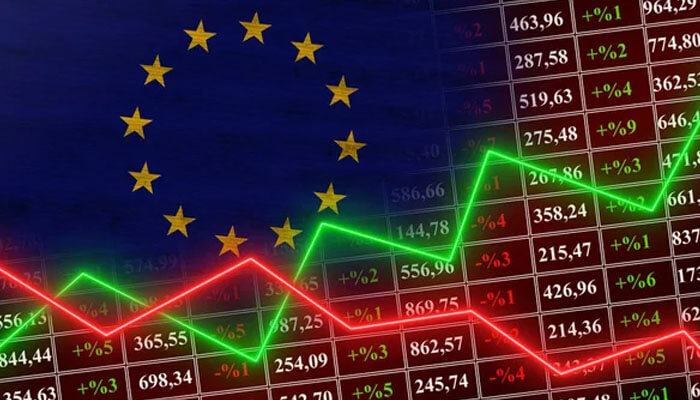Following official data released on Tuesday indicating a slight contraction in third-quarter output. The euro area economy faces the risk of entering a recession later this year.
According to an initial estimate released by Eurostat, the European Union’s statistics office, the gross domestic product of the 20 countries that use the euro decreased by 0.1% in the July–to–September quarter when compared with the preceding three months.
The decline emphasizes the thin line separating the eurozone’s contraction and growth and comes after a 0.2% increase in the April–June quarter. The first quarter of this year and the last three months of 2022 saw no change in the GDP.
In general, the eurozone is having difficulties. Jack Allen-Reynolds, deputy chief eurozone economist at Capital Economics, wrote in a note that “it has only grown by 0.1% over the past year, and the timeliest business surveys consistently point to activity declining at the start of [the fourth quarter].”
He went on to say that whether or not the eurozone experiences a technical recession—which is defined as two-quarters of declining GDP—the economy will “remain sluggish”.
Inflation is still declining.

Positively, according to other data, inflation continued to decline this month and, for the first time in over two years, fell below 3%. According to Eurostat, the rate of increase in consumer prices in the euro area from a year ago was 2.9% in October, compared with a 4.3% increase in September.
According to Christoph Weil, senior economist at Commerzbank in Germany, “the decline is mainly due to the fact that the strong increase in energy and food prices in October 2022 was not repeated this year.”
Core inflation, which deducts fluctuating costs for energy and food, decreased to 4.2% in September from 4.5%.
The European Central Bank has been raising interest rates for more than a year in an effort to control rising prices. Will be happy to see a slowdown in inflation. Following a run of ten straight rate hikes, the ECB held rates steady last week as the economy continued to deteriorate and inflation continued to drop sharply.
Europe is expected to “stagnate.”
The full-scale Russian invasion of Ukraine in February 2022 precipitated a sharp spike in energy prices that hit the euro area economy and made it difficult for it to recover momentum. Because of its sizable manufacturing sector and historical reliance on Russian gas, Germany, the largest economy in the region, felt the full brunt of the effects.
The subsequent increases in interest rates to control skyrocketing inflation have put additional pressure on consumer and business spending.
“A sharp recession is not in sight, but the economic environment is weakening at the moment,” stated Bert Colijn, senior eurozone economist at Dutch bank ING. “However, in the upcoming quarters, economic activity will be impacted by higher rates as well as ongoing economic and geopolitical uncertainty.”



